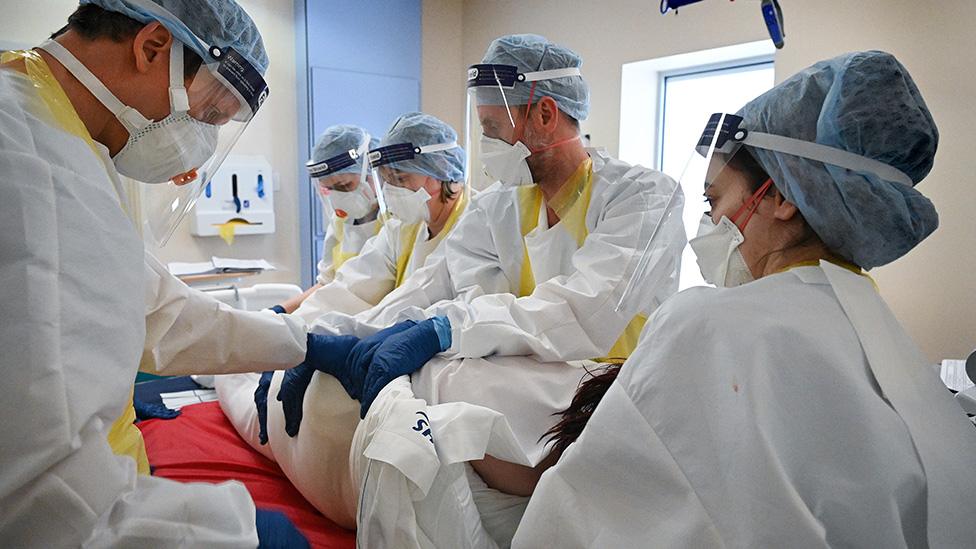NHS recovery from Covid will take years, says health secretary
- Published
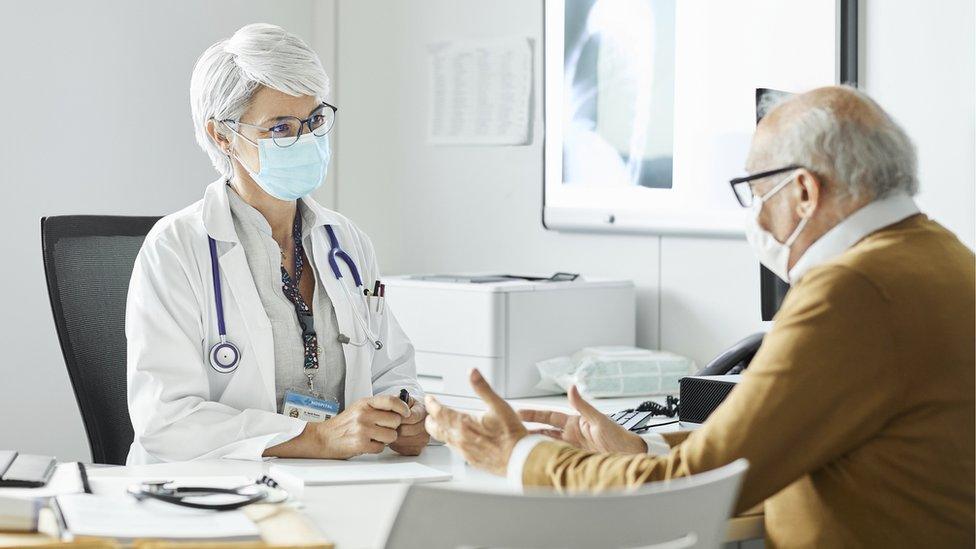
The recovery of the NHS in Scotland from the pandemic is going to take years rather than months, says Health Secretary Humza Yousaf.
A survey of more than 130,000 Scots found there had been a dramatic fall - to the lowest level since 2009 - in public satisfaction with GP services.
Mr Yousaf said the findings made for "difficult reading", but measures taken during Covid were "no fault of GPs".
He said he was confident that a target for 800 extra GPs by 2027 would be met.
The health secretary revealed the number of family doctors had risen by 275 since the commitment to increase numbers was made in 2017.
Despite accepting the target was "extremely ambitious", Mr Yousaf said much of the increase would come in later years. He said the government was on track to meet the target.
The annual Health and Care Experience Survey saw 67% of respondents give a positive rating about their overall experience.
It is a drop of 12% from the previous survey and 23% lower than the first survey in 2009
It comes after GP services were disrupted last year because of the Covid pandemic.
Just 37% of patients saw their GP face-to-face last year - a fall of 49%. And 57% had a telephone consultation - an increase of 46% on the year before.
Mr Yousaf told BBC Radio's Good Morning Scotland that ministers were committed to increasing the number of patients seen in person, but stressed that it would be part of a hybrid model.
He said: "For those who want to see their GP face-to-face, and it is clinically appropriate, they should be seen face-to-face.
"We will see numbers of people making face-to-face appointments increase, I am certain of that, because we have de-escalated some of the infection prevention control measures as we move from the pandemic into an endemic phase of this virus."
Mr Yousaf and First Minister Nicola Sturgeon launched a £1bn NHS Recovery Plan, external last August, with the restoration of face-to-face consultations one of its "key actions".
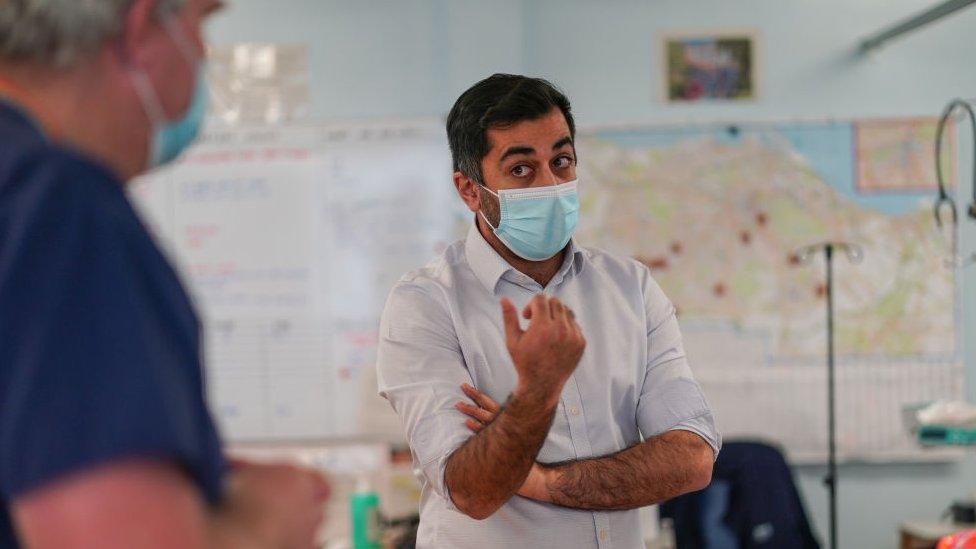
Humza Yousaf says controlling Covid transmission remains key to the recovery of the NHS in Scotland
The health secretary also said it was important to "sustain a trajectory of improvement" in the health service.
He added: "We have a relentless focus, a recovery plan backed by £1bn which I'm certain will help get us on track.
"The recovery of our NHS is not going to take us weeks or months, it is going to take us years."
Dr Andrew Buist, who chairs the British Medical Association (BMA)'s Scottish general practitioners committee, said given the changing nature of appointments caused by the pandemic, the survey figures were "remarkably good".
He cited findings that 86% of people said they were listened to and 83% said they were treated with compassion and understanding.
"We can't get away from the impact of the pandemic," he told BBC Radio Scotland. "This survey was carried out in November and December, just as Omicron was striking."
Dr Buist said a full-time GP in Scotland now has 1600 patients and satisfaction with services has been slowly dropping for the past 10 years.
'Renewed focus'
He said "good progress" has been made in expanding community physios and pharmacists, but that progress still needed to be made in investing in GPs.
Scottish Conservative health spokesman Dr Sandesh Gulhane, who is also a GP, said the survey demonstrated an "appalling shortfall in our workforce planning".
He said he had 60 patient contacts on Monday and would "love to see more patients face-to-face if possible" but demand was so high "because Humza Yousaf has failed to create a flow of patients through the NHS".
Scottish Labour's Jackie Baillie described the survey's findings as "damning".
"GP practices are doing their best but they are at breaking point and patients are paying the price, with the pandemic pushing us to a new low after years of decline under the SNP," she added.
Scottish Liberal Democrat leader Alex Cole-Hamilton said "15 years of SNP misrule" had been "a disaster for local health care".
"For those who can get an appointment, standards of care across our NHS remain high thanks to the hard work of staff but even getting to see a GP or a mental health worker can feel like a lottery," he added.
- Published11 May 2022
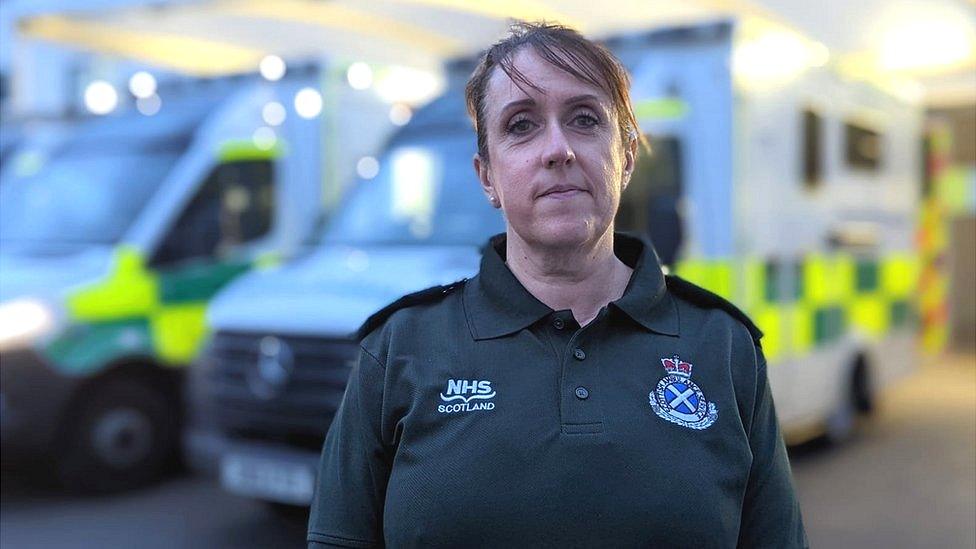
- Published24 February 2022
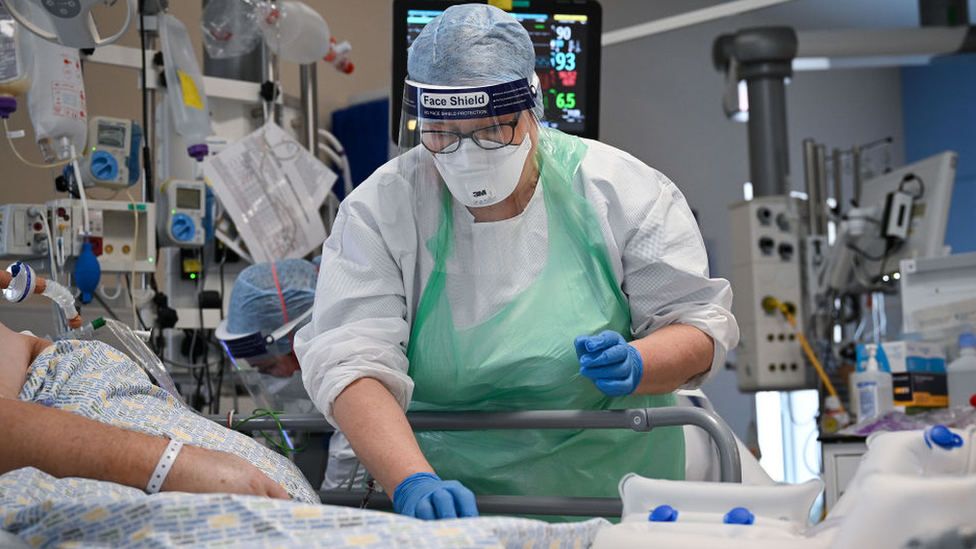
- Published25 August 2021
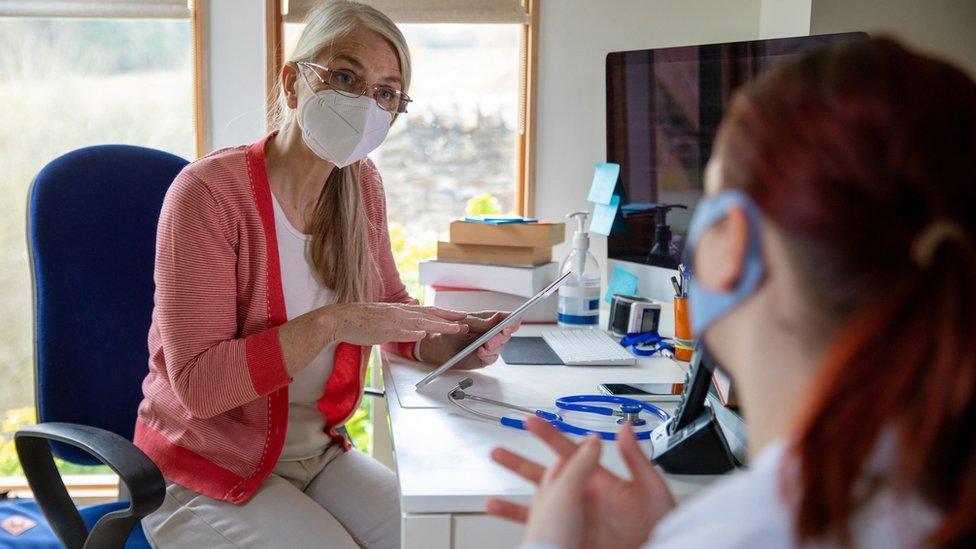
- Published12 August 2021
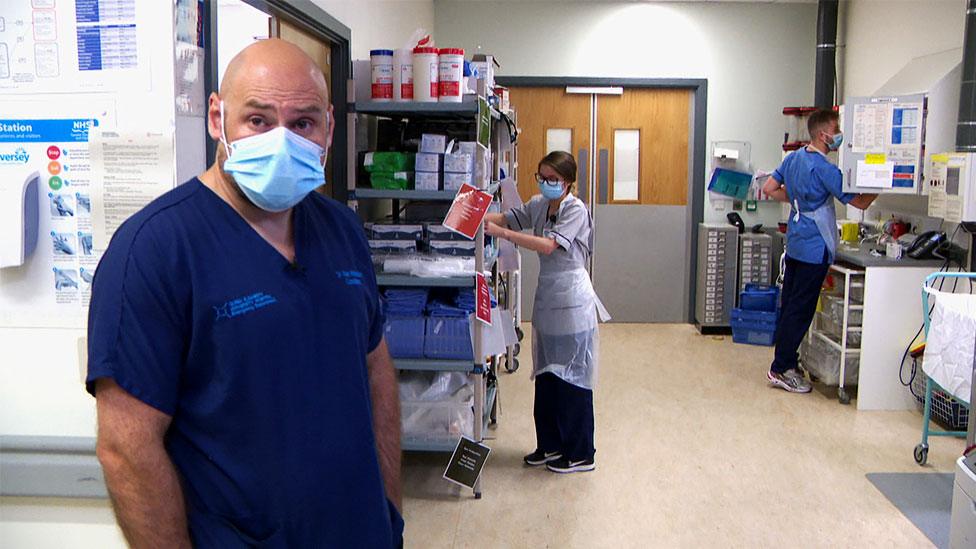
- Published26 February 2021
